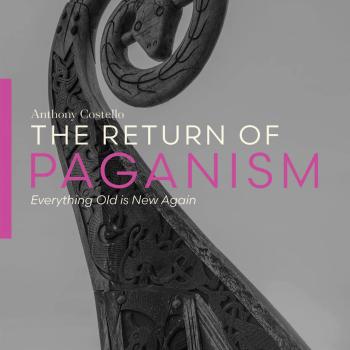Read Time: 10 minutes
We live in a world dominated by artistic representations of reality, especially in the form of film. As such, it seems worthwhile to pick out and recommend a few of the best of those representations. Put more simply, we live in a culture whose thought life has been, and continues to be, greatly shaped by Hollywood and its movies. Whether or not this fairly young historical phenomenon has, on the whole, been good for society is hard to say. On the one hand, my inner Platonist wants to scream, “no, imitation is too dangerous!” (see Plato, The Republic, Book X). However, theologically speaking, the capacity to create art is one of the communicable attributes we share with our Creator, Who, after all, created a cosmos (Jn 1:1-5, Col 1:15-20). Moreover, biblically speaking, we see God not only granting the capacity to create art, but anointing it for certain, religious ends (Exod 31:1-11).
Thus, since we live in such a culture dominated by art, especially cinematic representation, it is good to focus our attention on some examples of movies that are not only aesthetically great, but that have deep Christian themes. Paul commends us to focus our mind in this way, when he writes to the church in Philippi:
8 Finally, brothers, whatever is true, whatever is honorable, whatever is just, whatever is pure, whatever is lovely, whatever is commendable, if there is any excellence, if there is anything worthy of praise, think about these things. 9 What you have learned and received and heard and seen in me—practice these things, and the God of peace will be with you.
If we are to use artistic media, then best use it to the glory of our Creator. If we are to partake of movies, then let’s partake of the best movies producers have to offer. And so, in this spirit, here are 5 (actually 6) films that do just that: glorify God and elevate our sense of His character through the use of aesthetics. I have put these in order of least explicitly Christian to most explicitly Christian. The final two are about the historical Jesus specifically, and, to my knowledge, are still the two best films about the biblical Christ. In this post, I will discuss numbers 5 and 4 on the list, both of which are sports films (but not really).
#5) Rocky: The Greatest Redemption Story Ever Made
From the outset, Sylvester Stallone and John Avildsen’s original Rocky is a deeply Christian film. It is also one of the greatest scripts ever written. The very first camera shot sets the stage for what is the greatest redemption story ever filmed: juxtaposing the image of the Lord Jesus hovering over the gritty, chaotic and violent reality of men. From the start, Stallone’s imagery suggests that God is providentially over the story that is about to unfold. Each character: Rocky, Paulie, Mickey and Adrian, is introduced in their particular state of brokenness, just like the dilapidated urban setting in which they all live. They are washed up, emotionally insecure, substance addicted, old and forgotten, relationally isolated and angry.
Yet, in deus ex machina fashion, an unexpected opportunity arises, almost miraculously, that will forever change their lives. Rocky, the down-and-out club fighter receives the shot at “the greatest title in the world.” At that time, the 1970’s, boxing still enjoyed its status as the most beloved, global sport. Basketball and American Football had not yet really emerged as America’s favorite pastimes, and baseball was a uniquely American sport, barely understood by anyone outside the Continental US. Even football (soccer), while the most played sport in the world, had not yet attainted the glamorous status of boxing. Thus, the use of a boxing story as a medium to show how even the least of us can find redemption in life was a brilliant artistic intuition (of course, Stallone was also inspired by the real-life story of Chuck Wepner, who went the distance with Muhammad Ali).
In the end, Rocky’s failed attempt at the title is nevertheless adequate to the greater accomplishment of personal redemption, a redemption that he did not necessarily earn, but that was given to him from above. This is made clear in one of the pivotal scenes in the film, where we find out why Mickey holds such a grudge against Rocky: Rocky had the talent to be the champ, but wasted it working as a strongman for a local thug. Of course, allusions to a broken family life and the typical hardships associated with living in an impoverished section of Philadelphia mitigate Rocky’s culpability in his moral choices. Plus, as the movie depicts with brutal honesty, Rocky really isn’t all that smart. In fact, he is genuinely naive, a trait that is equally tragic, as when we see others taking advantage of Rocky, and endearing, especially to Adrian who becomes his great defender and protector.
By the end of the film, each character experiences their own redemptive grace: Mickey can finally enjoy having had a fighter challenge for the title, the pinnacle to a career otherwise marked by hardship and obscurity. Paulie, even if for a moment, gets to live out his dream of being a somebody. As for Adrian, she finds someone who genuinely cares for her, in what is still one of the most profound love stories ever filmed, with dialogue as genuine as it gets: “she’s got gaps, I got gaps, together we fill gaps!” Now that is the poetic realism.
Finally, through Apollo’s offer at the title, and Rocky’s acceptance of that offer (the main theological theme of the film), Rocky comes to know that he isn’t a “bum.” And that means the world to someone who actually believes they are. Add to this one of the most memorable soundtracks in cinematic history, and the best sports’ script ever written (with great closing lines like “Where’s your hat?“), and Rocky is not only one of the greatest films of all time, but one of the most Christian. It is also the reason why Stallone has never really been able to move on from the iconic role.
Unfortunately, many will confuse later renditions of Rocky (and now Creed) with the original. While some of the Rocky sequels are good films in their own right (especially Rocky II and the first Creed), shallow characterization and conventionality of plot increased with each new edition to the series. Thus, none of the later films can match the original in its exquisite balance of artistic realism with transcendent, existential themes.
#4 Chariots of Fire: Running The Race for Christ
Clocking in at the #4 spot, pun intended, is another classic sport’s film, Hugh Hudson’s 1981 Chariots of Fire. The film juxtaposes the story of two British runners: Harold Abrahams and Eric Liddell, who both won gold medals in the 1924 Olympic Games. Hudson’s film is a paradigm of classic, historical epic– a genre of film that Christians really need to further exploit (as we will see in the next post). Again, like Rocky, the script is brilliant and Vangelis’ soundtrack one of the most memorable in movie history.
Of course, the title itself sets the tone of the film. Taken directly from 2 Kings 2, it refers to the assumption of the Prophet Elijah into heaven:
9 When they had crossed, Elijah said to Elisha, “Ask what I shall do for you, before I am taken from you.” And Elisha said, “Please let there be a double portion of your spirit on me.” 10 And he said, “You have asked a hard thing; yet, if you see me as I am being taken from you, it shall be so for you, but if you do not see me, it shall not be so.” 11 And as they still went on and talked, behold, chariots of fire and horses of fire separated the two of them. And Elijah went up by a whirlwind into heaven. 12 And Elisha saw it and he cried, “My father, my father! The chariots of Israel and its horsemen!” And he saw him no more.
The central figure in the film is Liddell, the Scottish missionary who eventually died in a Japanese prison camp in China during the war. Reflecting upon his passing in the camp, fellow prisoner and later theologian, Langdon Gilkey, said this of the historical Liddell (who Gilkey refers to as “Eric Ridley”):
It is rare indeed that a man has the good fortune to meet a saint, but he came as close to it as anyone I had ever known….A track man, he had won the 440 in the Olympics for England in the twenties, and then had come to China as a missionary. In camp he was in his middle forties, lithe and springy of step, and, above all, overflowing with good humor and love of life….It was Eric’s enthusiasm and charm that carried the day with the whole effort [to encourage the other inmates, especially the teenagers]. Shortly before the camp ended, he was stricken suddenly with a brain tumor and died the same day. The entire camp, especially its youth, was stunned for days, so great was the vacuum that Eric’s death had left.
Gilkey, Shantung Compound, 192
It is the spirit of this man Liddell that Hudson’s film captures so well, juxtaposing it alongside the physical, social and psychological struggle of Abrahams, a Jew living in the center of the Anglo-Christian world. Both men display qualities and virtues worthy of emulating, but we discern as the movie unfolds that while Abrahams strives “in the flesh” to actualize his God-given potential, Liddell, the Christian, is the one fully surrendered to the grace of God. The theological analogy is palpable, and it is summed up in this pivotal scene, where the everyman Liddell addresses a crowd of adoring fans, explaining to them from whence comes the ability to run, and the power to finish the race.
In another scene, historically accurate, we encounter Liddell at the Olympic Games refusing to run the 100 meters because it fell on a Sunday. For the British athletic committee (many of whom were aristocrats, like the Prince of Wales), not having the top sprinter in the world at the time run for English gold was more than disheartening, it was almost treasonous. The glory of the nation is put forth as weightier than the glory of God. But Liddell won’t have it. At the end of the scene, one of the members recognizes what the committee had tried to do: sever Liddell from the source of his speed and tenacity, that source being Christ. In this, the movie does an excellent job of showing the powerful Christian man who, in understanding from where his power comes, is also the most humble of men.
Chariots is especially poignant in light of our current American culture, where professional sports itself has reached the level of being its own religion. While many athletes give lip service to God for their talent and achievements, either with simple gestures (pointing up to the sky) or even explicitly proclamations, like this one, it is good to know that there were men of God who were great athletes before sports became multi-billion dollar businesses.
Saints like Liddell recognized where their talent came from. They put it to use for the glory of the One Who created the very body the athlete puts under exertion for the sake of victory. However, it is rare these days, albeit not unheard of, for athletes who are Christians to also do what Liddell did, and forego their athletic careers for a different kind of ministry, one that may end up in a prison camp or on the fringes of society.
In the next post, I will look at two more historical films that both tie for third place on the list.













